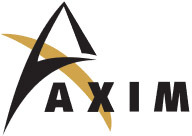Ultrasound-Guided Regional Anesthetic Techniques - Session 7: The Trunk
Species
Small Animal
Contact Hours
2.5 hours
Early Booking Deadline
Thu, 01 January, 1970
Registration Deadline
Thu, 01 January, 1970
Language
English
Discipline
Anaesthesia & Pain Management
Diagnostic Imaging
Orthopaedics
Surgery
Toxicology & Pharmacology
Industry Partners
Global

Veterinary Partners
Global


Online Lecture – Ultrasound-Guided Regional Anesthetic Techniques - Session 7: The Trunk
Part of the Online Lecture Series on Ultrasound-Guided Regional Anesthetic Techniques for Small Animals
CONTENT DESCRIPTION
This session will continue on the theme of ultrasound-guided interfascial plane blocks and will introduce you to several blocks that can be used to provide anesthesia and prevent nociception to the chest and spine. Thoracic Paravertebral (TPV) blocks and Serratus Plane (SP) blocks can be used to provide anesthesia and analgesia for rib fractures, lateral thoracotomy, median sternotomy, and chest wall resection. Erector Spinae Plane (ESP) blocks can be used to facilitate surgical procedures of the thoracic and lumbar spine such as hemilaminectomy and dorsal laminectomy. These blocks are important for you to know how to perform if your caseload involves these types of surgical procedures. We will review the current literature and use our clinical and research experience to focus the discussion of relevant anatomy, drug selection, required equipment, what are the desired ultrasound images to obtain, and expected effects and contraindications.
Dr. Campoy is a Clinical Professor and Section Chief of Anesthesiology and Pain Medicine at Cornell University College of Veterinary Medicine. A native of Spain, Dr. Campoy received his veterinary degree from Universidad de Zaragoza (Spain) in 1995. After some time in private practice, he completed an internship at the aforementioned University. Subsequently, Dr Campoy completed his residency in Anaesthesia and Intensive Care at University College Dublin (Ireland). He attained diplomate status from the European College of Veterinary Anaesthesia and Analgesia in 2004. Dr. Campoy also holds a Certificate in Veterinary Anaesthesia of the Royal College of Veterinary Surgeons.
Research interests for Dr. Campoy are focused on locoregional anesthetic techniques for all species with a focus on dogs and horses. He has co-authored numerous peer reviewed publications on this topic as well as some of the leading texts in locoregional anesthesia.
Dr. Matt Read graduated with a DVM with distinction from the Western College of Veterinary Medicine in Canada in 1998. Following graduation, he completed a residency in veterinary anesthesiology and a Master of Veterinary Science. He became board-certified with the American College of Veterinary Anesthesia and Analgesia (ACVAA) in 2002.
Following his residency, Matt taught at the University of Georgia for two years before returning to Canada and developing and supervising the anesthesia services in two large specialty hospitals in Toronto and Calgary between 2003 and 2010. In 2010, Matt joined the University of Calgary as an Associate Professor where he taught in the DVM program and also served as Assistant Dean, Admissions.
In 2018, Matt moved to Columbus, Ohio where he is now working as an anesthesiologist and serving as Specialty Team Leader - Anesthesiology for MedVet, a family of emergency and specialty hospitals with more than 30 locations across the USA.
Matt has delivered over 100 lectures and workshops around the world and is currently preparing the second edition of a textbook, Small Animal Regional Anesthesia and Analgesia.
He dreams of someday going into space and opening an ice cream shop in the Caribbean, not necessarily in that order.
Maja graduated from the Wroclaw University of Environmental and Life Sciences in Poland in 2010. After graduation she worked for 2 years at the same university in the Surgical Department where her main focus was anaesthesia and emergency critical care.
She moved to the UK in 2012 and undertook an Internship at the University of Liverpool followed by a Residency in Veterinary Anaesthesia and Analgesia at the Royal Veterinary Collage. Maja joined DWR in 2017 and in the same year became a European Specialist.
Veterinary Student
Webinar
USD 35.00
Qualified Vet
Webinar
USD 155.00
Intern/Resident (Requires proof of status)
Webinar
USD 115.00
Vet Nurse/Vet Tech (Requires proof of status)
Webinar
USD 115.00
Vet & Vet. Nurse / Vet. Technician
Webinar
USD 265.00
If the options you are looking for are unavailable, please contact us.
No tax will be added unless you are a UK taxpayer
Choose currency at checkout


















